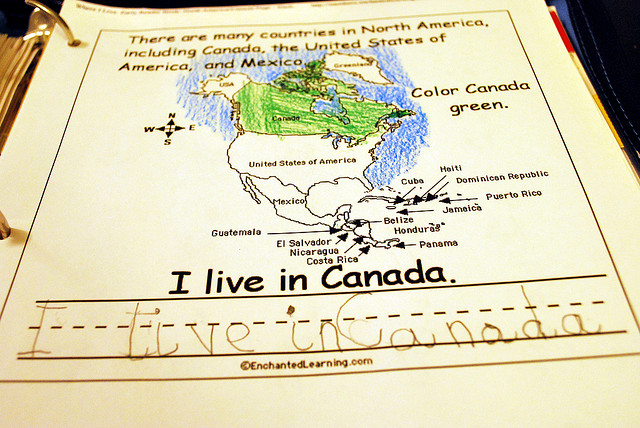There was an excellent ventilation of the elder care issue in a series of articles in this newspaper over the past weeks, a necessary illumination of the challenges that are not so much ahead as upon us.
One thing missing, however, was more than passing mention of the elephant in the old folks’ home: the country’s rising tar-sands social policy, followed by the implied question — are we a country or not?
Let’s put it this way. In some parts of Canada, we’re getting collectively older fast, in Nova Scotia in particular, but also in other “have not” provinces.
This is not just because we’re sitting here getting older, but because our young and not-so-young people are heading to Alberta and environs in droves.
Meanwhile, retirees from points west are coming here. I’m not sure how big this is, but newcomers, at least in my neck of the woods, are popping up regularly.
The economics of this are compelling. If you can sell out for hundreds of thousands in Ontario, Alberta or B.C. and buy an adequate place for $100,000 or less (or in western Nova Scotia, for as little as $50,000; and if you’re a Mr. Fixit, a result of bank repossessions, seedy but with everything working, have gone for as little as $10,000), you’ve got your retirement income.
This is both good and bad. Good to have new people around getting involved and spending money, but it also makes us even older, implying even more pressure on elder care, health care and other services.
But so what? We’re one country, aren’t we? We have a civilized equalization program in which wealth from the richer provinces buck up the poorer ones for just such services. About a third of Nova Scotia’s budget is from federal transfers.
But equalization is being eaten at and the philosophy at the base of the Conservative party is that this is encouraging government bloat and laziness at best, and that it’s socialism at worst. Regularly, western right-wing think tanks come out with reports based on cherry-picked data purporting to show this. They get wide circulation in the western media.
The latest is from the Fraser Institute, with such tag lines as “poor is the new rich” — that is, the poor provinces have better public services than the rich ones, as demonstrated by comparisons like the following: Nova Scotia has more doctors per capita than B.C., so Nova Scotia is better served. No inkling that these doctors are concentrated in Halifax, which has a medical school, that large populations are more efficiently served than more dispersed rural ones, or that older people need doctors far more than younger ones.
Barry Cooper, of the Canadian Defence and Foreign Affairs Institute, commenting in the Calgary Herald, bemoaned “worse public services in the three ‘have’ provinces while have-not provinces maintain gold-plated public services and free-spending governments.”
Gold-plated, no less! He called for the Alberta government to pressure Ottawa to freeze the program “with an eye to scrapping it,” recalling that then-Alberta Finance Minister, Ron Liepert, in unveiling the 2012 budget, said “if you qualify for equalization, you should have to show some results based on performance.”
Not so outrageous an idea, true, and I grant that we could be a lot more efficient in these have-nots. But it would have been far more convincing if he hadn’t been such a sooky baby himself.
Alberta’s fiscal capacity (the capacity to raise revenue from taxes and industrial activity, which is what equalization is based on) is 166 per cent above the Canadian provincial average and headed for 180 per cent, according to the Canadian Centre for Policy Alternatives, the one outfit that sasses back at these big-money institutes.
Meanwhile, Alberta has the lowest taxes in Canada, and no sales tax, but whinges that it can’t afford services while we welfare cases can. Plus, the petro-boom distorts the Canadian economy, driving up the dollar and putting anyone who exports at a disadvantage.
The high dollar, for example, has ravaged the lobster industry, many of whose participants, in a vicious cycle, have gone to Alberta. Who owes what to whom here?
The equalization regime is up for renewal in March. When the health accords were up, Stephen Harper dictated a new simplified arrangement — so much per capita.
Alberta gets the same for its young people as we do for our old people, who cost plenty more. A billion-dollar windfall for Alberta. Can we expect the same again with equalization?
My point is that the Nova Scotia government, and the other “have-nots” had better start tending to this, and get their acts lined up. Stephen Harper has dropped the practice of federal-provincial relations altogether, choosing to dictate terms. And, wounded and incapable of changing, who knows what he’ll try.
Ralph Surette is a freelance journalist in Yarmouth County. This article was first published in the Chronicle Herald.




